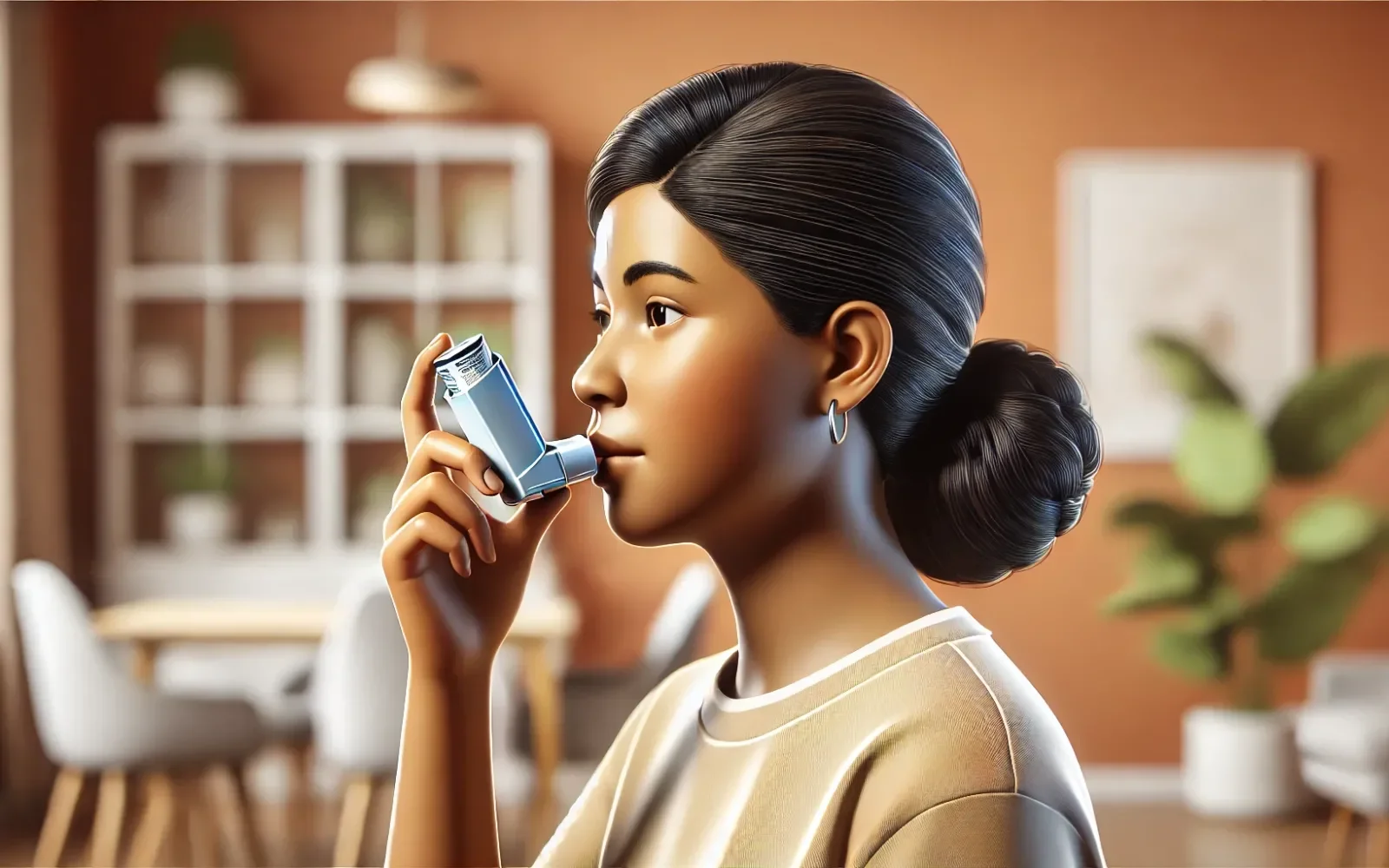Take steps to breathe easier.
If you have asthma, it is important to understand the things that can trigger an attack.

Asthma is a chronic condition that affects the lung’s airways. When an asthma attack happens the airways in the lungs become swollen or inflamed. This makes it harder to move air in and out of the lungs. Most people with asthma have one or more of these symptoms – coughing, wheezing, chest tightness or shortness of breath. For those without asthma, imagine trying to breathe through a straw.
People living with asthma may find that certain allergens can trigger a reaction. Allergens are found indoors and outdoors. Common asthma triggers found indoors include pet dander, pests, dust mites, cigarette smoke, and mold. Outdoor triggers include pollen, air pollution, and even the weather. For example, cold, dry air can set off asthma. Understanding what makes your asthma worse is an important part of getting it under control.
Asthma takes ongoing monitoring and management to keep it under control. Most people with asthma can live a normal, active life by following these four steps:
- Work closely with your health care providers. Regular asthma check-ups with your health care provider will help you learn how to manage your asthma and keep it under control. Depending on your situation, your doctor may refer you to a respiratory therapist or asthma educator for further evaluation and treatment.
- Manage your medicines. Many people with asthma are prescribed medication to help prevent symptoms. In order to be effective, these should be taken as prescribed, even when there are no symptoms. If you have questions about a medication, discuss this with your doctor or pharmacist. They can help you learn which medicines to take, when to take them, and how to use them correctly.
- Identify your asthma triggers. Over time, you should be able to identify the triggers that cause your asthma symptoms. If possible, you should avoid situations where these triggers are present.
- Watch for changes in your asthma. Your asthma symptoms and triggers may change as you get older. Keep track of these changes and what you need to do at the onset of an asthma attack. Act quickly and follow your health care provider’s instructions to help keep your asthma symptoms from getting worse. If your child has asthma, talk with the school nurse so they are aware and can intervene if an attack happens at school.
Certain populations, such as Black, Hispanic/Latino and Native American tend to have higher rates of asthma than other communities.
If you have asthma, download this asthma action plan to track your symptoms, medications and learn more about the various allergens that can cause an asthma attack.
The pulmonary team at Nashville General Hospital can help diagnose and treat chronic respiratory problems like asthma. To learn more about our services and make an appointment, visit the Pulmonology website.
This information is not intended to be a substitute for professional medical advice. You should talk with your primary care physician or other qualified medical professionals regarding diagnosis and treatment of a health condition.
Sources:
- nih.gov, “Asthma and Allergies and their Environmental Triggers”, National Institute of Environmental Health Sciences part of the National Institutes for Health, January 18, 2019
- nih.gov, “Learn More Breathe Better®: Asthma”, National Heart, Lung and Blood Institute part of the National Institutes for Health, June 2024
- cdc.gov, “Asthma”, U.S. Centers for Disease Control and Prevention, June 2024



